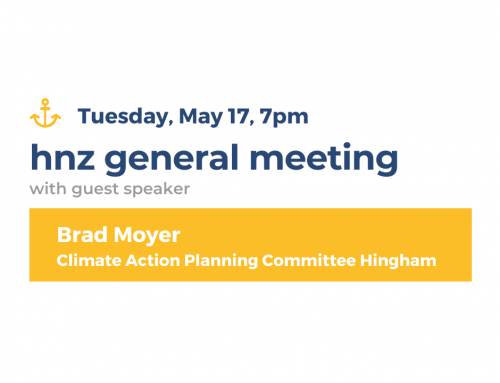Special thanks to Light Board member Roger Freeman for providing a summary of their most recent meeting:
REC SALES
The General Manager, Paul Heanue, reported that he sold Hingham’s Class I Renewable Energy Certificates (RECs) from our existing wind projects, and bought “Replacement” Class II RECs so that Hingham could still claim it was powered with zero carbon. The exchange of high value Class I REC for lower cost and value Class II RECs netted HMLP approximately $400,000.
What does this mean? Simply put, if Hingham had “retired” the wind project Class I RECs instead of selling them, they would not be selling the right for the buyer to emit $400,000 (as priced by the market) worth of CO2. So while HMLP can technically report we utilize zero carbon, we are rightly vulnerable to claims of greenwashing, as it significantly downgraded the quality of our green investments.
REP. JOAN MESCHINO
State Representative Joan Meschino presented information on her Roadmap Bill HB 3983 which accelerates the timelines for the state to achieve zero carbon emissions. The new goals are 50% below 1990 in 10 years, 75% below 1990 in 2040 and net zero at 2050. Under her bill municipalities are for the first time subject to the same mandates as utilities but development of strategies and timelines for achieving targets remain with local control. This Bill was discussed in contrast with a Bill offered last year by MEAM, the Municipal Energy Association of Massachusetts, which established standards for the MUNIs that were designed to mimic the requirements of the Global Warming Solutions Act, but kept the Munis under separate regulatory mandate instead of bringing them under the ambit of MA overall Climate Law.
ANALYSIS GROUP STUDY
The Board received a presentation from the Analysis Group regarding a preliminary study on impacts to HMLP electric system and load as Hingham transitions to a net zero carbon economy over the next 20 years. The study looked at various additions of electric vehicles and heat pumps at varying levels in 5 year increments up to 50% usage by Hingham residents in 2040. The report shows that our system can accommodate a lot more electric vehicles and heat pumps without requiring substantial physical system upgrades. The report does not show the more challenging impacts if we go to 75% or 100% electric cars and heat, because then we will likely face major system upgrade requirements. The conclusion of the study is that we need to start planning for a more electrified future now, planning for new programs, policies, rates and investments in infrastructure.





